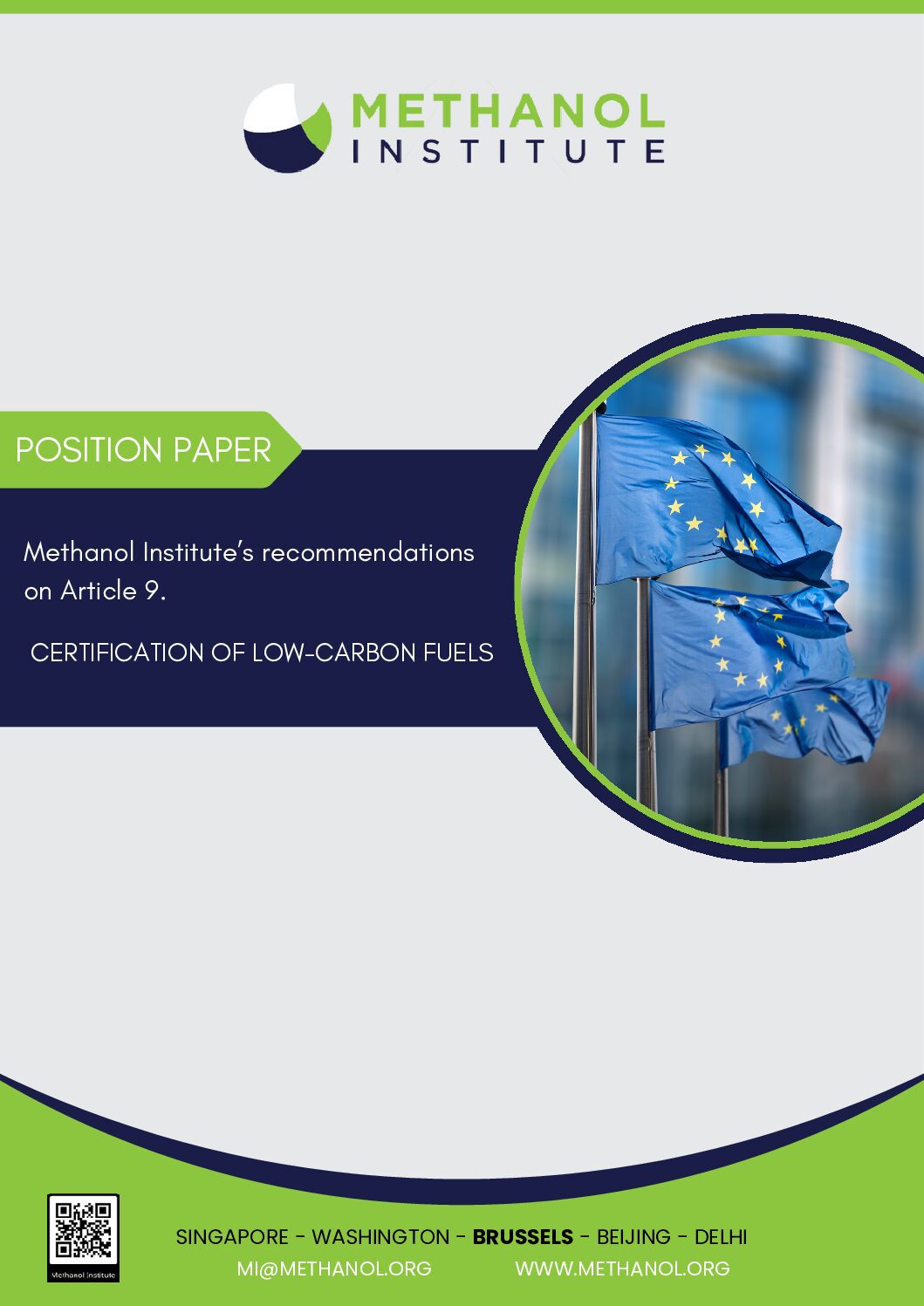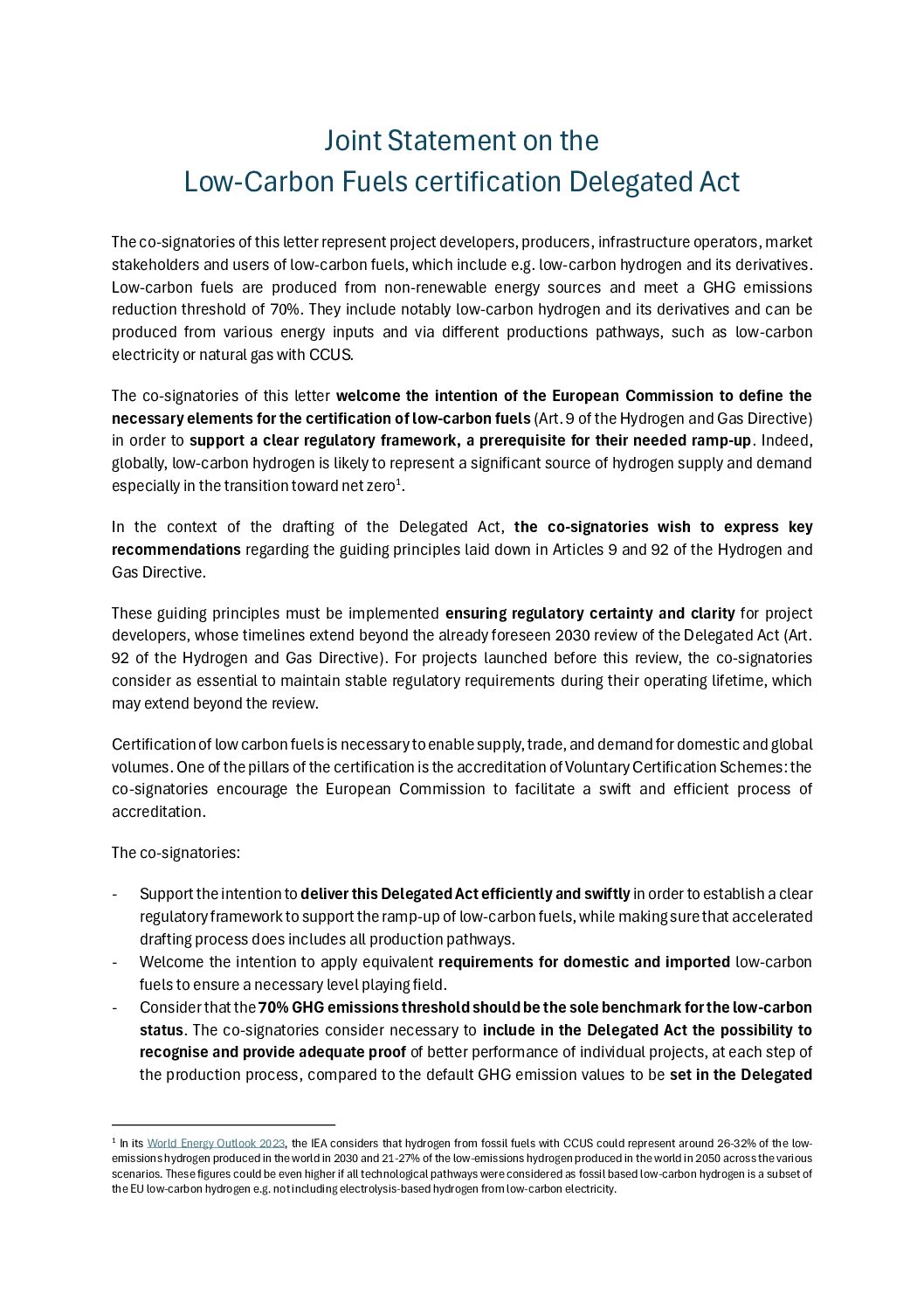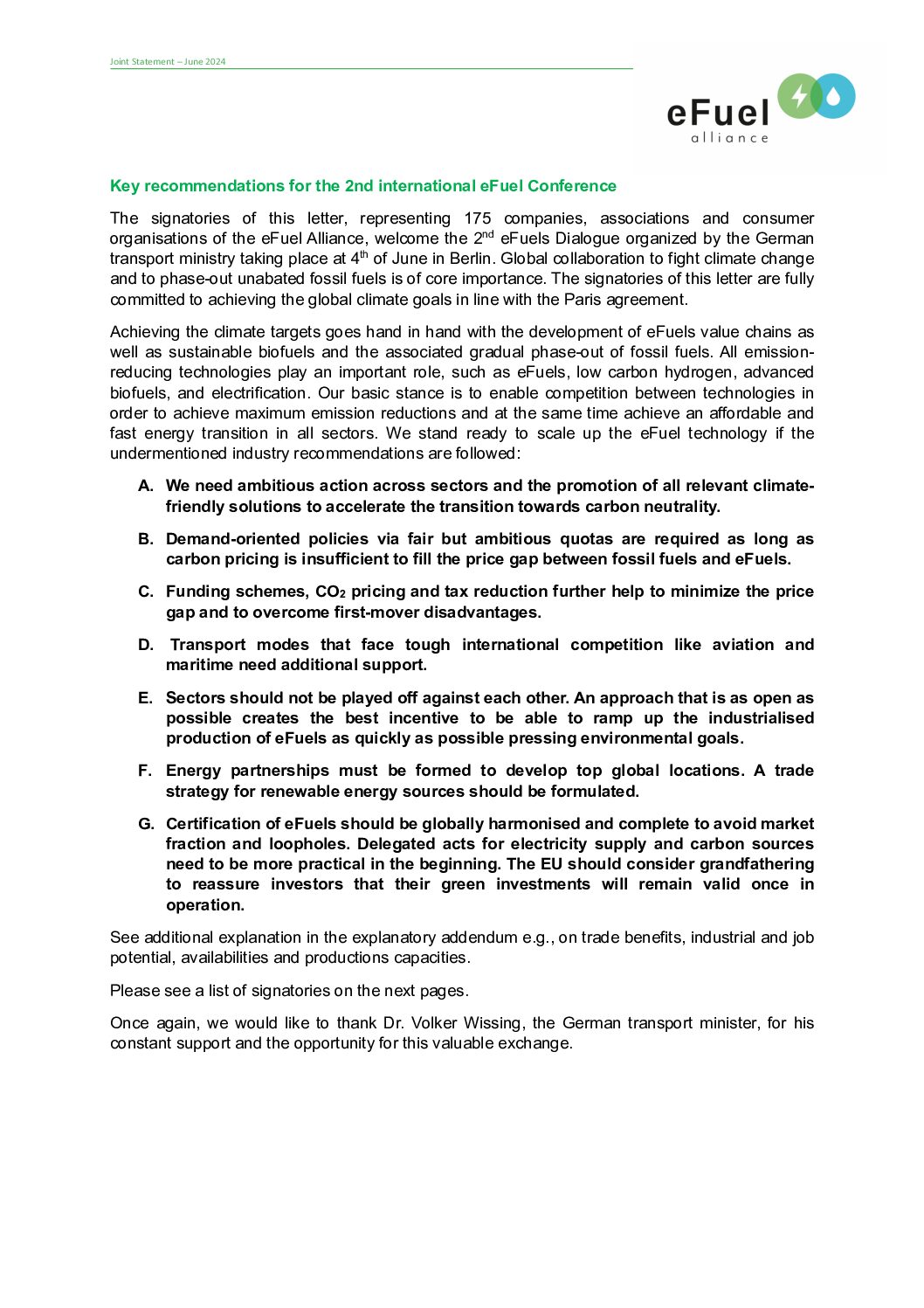The CO2 Emission Standards for Heavy Duty Vehicles as proposed by the Commission, rely solely on the electric power train to attain climate objectives, neglecting the fact the electricity is only as pure as its power source. In its position, the Methanol Institute calls for balanced climate policies for heavy-duty mobility, calling for the recognition of the contributions of renewable fuels in the segment and a transition away from the high-risk strategy of relying solely on one technology solution.
MI’s position paper proposes modifications to the European Commission’s proposal to enable the energy transition of heavy-duty mobility in a technology-neutral manner.
As part of a coalition of industry leaders, including CEWEP, eFuel Alliance, Eurogas, ESWET, Fertilizers Europe, FuelsEurope, the Methanol Institute jointly sent a letter to the European commission, Council of the EU and European Parliament regarding the Net Zero Industry Act (NZIA).
Our aim is to ensure that the definition of Sustainable Alternative Fuels within the NZIA aligns with key EU policies on transport and fuels. By doing so, we can unlock the potential for innovation and transition to renewable, low-carbon solutions within the industrial sector.
MI has released its response to the European Union’s Net Zero Industry Act (NZIA). The NZIA is a component of the EU’s Green Deal Industrial Plan, which is the bloc’s response to the United States’ Inflation Reduction Act (IRA). The purpose of the NZIA is to increase the competitiveness and resilience of the EU’s net-zero technology industrial base, which will make up the backbone of an affordable, reliable, and sustainable clean energy system.
MI’s position paper presents a comprehensive breakdown of the Methanol Institute’s views on key elements of the package and provides policy recommendations on behalf of the global methanol sector.












